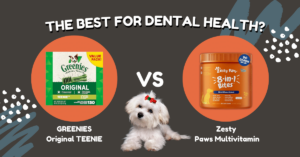For many people, owning a dog is a dream come true. However, if you suffer from allergies, it can be challenging to find a furry friend that won’t trigger your symptoms. The good news is that there are hypoallergenic dog breeds that produce fewer allergens, making them a great option for allergic dog lovers. In this guide, we will discuss how to choose a hypoallergenic dog that suits your needs, personality, and lifestyle.
Factors to Consider When Choosing a Hypoallergenic Dog
Allergen Levels
One of the most crucial factors to consider when choosing a hypoallergenic dog is the level of allergens they produce. Some breeds produce fewer allergens than others, making them a better fit for people with allergies. However, it’s essential to note that no dog is entirely hypoallergenic, and everyone’s allergy levels are different.
Breeds with Low Allergen Levels
Some of the most popular hypoallergenic dog breeds include:
Poodle
Bichon Frise
Portuguese Water Dog
Schnauzer
Maltese
Yorkshire Terrier
Shih Tzu
Chinese Crested
Basenji
Samoyed
Grooming Needs
Another essential factor to consider when choosing a hypoallergenic dog is their grooming needs. Dogs with hair instead of fur, such as Poodles and Bichon Frises, require regular grooming to prevent matting and keep their coats healthy. On the other hand, dogs with fur, such as the Samoyed, require less grooming but shed more.
Shedding vs. Non-Shedding
If you’re looking for a hypoallergenic dog that sheds less, you’ll want to choose a non-shedding breed. These dogs produce less dander and are less likely to trigger allergies. However, keep in mind that non-shedding dogs require more grooming to keep their coats healthy. If you don’t have the time or money to invest in grooming, a shedding breed may be a better fit.
Size and Activity Level
When choosing a hypoallergenic dog, it’s essential to consider their size and activity level. Some hypoallergenic breeds, such as the Maltese and Yorkshire Terrier, are small and require little exercise. On the other hand, breeds like the Portuguese Water Dog and Samoyed are larger and require more activity. Consider your lifestyle and living situation when choosing a hypoallergenic dog.
Best Hypoallergenic Breeds for Apartments
If you live in an apartment, you’ll want to choose a hypoallergenic breed that doesn’t require a lot of space or exercise. Some of the best hypoallergenic breeds for apartments include:
Bichon Frise
Maltese
Yorkshire Terrier
Shih Tzu
Chinese Crested
Temperament and Personality
Finally, it’s essential to consider the hypoallergenic dog’s temperament and personality when choosing a furry friend. Each breed has its own unique characteristics, and it’s important to choose a dog that fits your lifestyle and personality. Some hypoallergenic breeds, such as the Poodle and Bichon Frise, are affectionate and friendly, while others, like the Basenji, are more independent.
FAQ
Q: Can I be allergic to hypoallergenic dogs? A: Yes, it’s possible. While hypoallergenic dogs produce fewer allergens, they still produce some, and everyone’s allergies are different. It’s essential to spend time with the dog before adopting to see if you have a reaction.
Q: Are mixed breed dogs hypoallergenic? A: It depends on the breed mix. If one of the breeds in the mix is hypoallergenic, there’s a chance the dog may be hypoallergenic as well. However, it’s impossible to know for sure, so it’s essential to spend time with the dog before adopting.
Q: Do hypoallergenic dogs require special diets? A: No, hypoallergenic dogs do not require special diets. However, feeding them high-quality dog food is essential to keep their coats healthy.
Q: How can I reduce allergens in my home with a hypoallergenic dog? A: Regular grooming, including brushing and bathing, can help reduce allergens in your home. Using a high-efficiency particulate air (HEPA) filter and vacuuming frequently can also help.
Conclusion:
Choosing a hypoallergenic dog requires careful consideration of several factors, including allergen levels, grooming needs, size and activity level, and temperament and personality. By taking the time to research different breeds and spending time with the dog before adopting, you can find a furry companion that won’t trigger your allergies and fits your lifestyle and personality. Remember that no dog is entirely hypoallergenic, and it’s essential to manage your allergies with proper grooming and maintenance.









